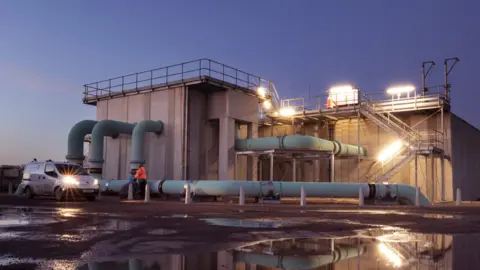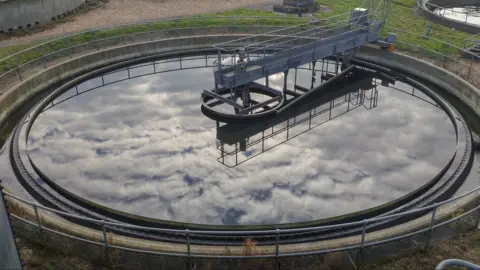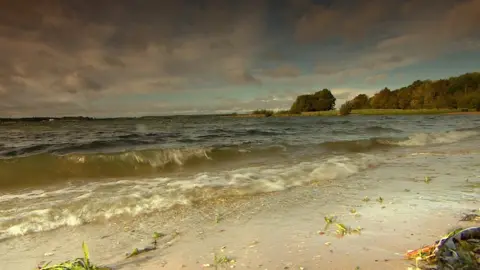Anglian Water says 'we must be more robust towards drought'
 Getty Images
Getty ImagesA water firm said it was confident it had solutions to long-term shortages and "must be more robust towards drought".
Anglian Water said it was taking "the long-term view" to ensure supplies for its 4.3 million customers.
That included building two reservoirs and re-using more sewage water.
The company, which operates across eastern England, said sea water de-salination plants were "not high in our priorities" at this time.
Anglian Water's main region covers Bedfordshire, Cambridgeshire, Essex, Lincolnshire, Norfolk, Northamptonshire, Rutland and Suffolk, and it also supplies water in Hartlepool in north-east England.
Previously it has said that it could have a water deficit of hundreds of millions of litres a day by the 2050s.
 Anglian Water
Anglian WaterLaura Tuplin, water resources strategy programme manager, said: "What we do is look at the long-term supply and challenges for the future as we need to reduce the water we take from the environment.
"In the East we're seeing a change in weather conditions. We have less water available as well as seeing growth [in population].
"We must be more robust towards drought."
Anglian Water is the largest water company in England and Wales by geographical area, while the region is one of the driest in terms of rainfall.
 Anglian Water
Anglian WaterThe firm was planning on building two new reservoirs - in south Lincolnshire and the Cambridgeshire Fens - and would continue to re-use more water from the sewer network after treatment.
Ms Tuplin said: "We're looking all the time to engage with customers, like with the smart meter programme, that can look at the amount of water they're using and get them to change their habits and also see if they have a leak - it gives more control to the customer."
 Anglian Water
Anglian WaterIt was also working to reduce the amount of water lost from leaks in its pipe network, it said.
"This year we have delivered out best ever performance, surpassing the incredibly stretching target set by our regulators Ofwat, and delivering the equivalent of five years' worth of reduction in a single year," the company said.
'Resilient supplies'
Prof Paul Jeffrey, director of water theme at Cranfield University in Bedfordshire, said climate change and population growth was driving significant increases in the use of water resources, and water companies were required to tackle that.
"Being more efficient in the ways we use water, and storing or moving water between areas of deficit and areas of surplus, will all help to ensure more resilient supplies," he said.
"Specific initiatives which can make a difference include water re-use, new reservoirs, leakage control, water conservation, and bulk transfers."
Converting salty sea water to drinking water, as many countries with hot or desert climates do, "is not high in our priorities", Ms Tuplin said.
"We're confident new solutions will work, we have a very thorough planning, modelling and decision process.
"We need to work together, customers and stake holders, to make sure we're using water responsibly."
 Steve Hubbard/BBC
Steve Hubbard/BBC
Find BBC News: East of England on Facebook, Instagram and Twitter. If you have a story suggestion email [email protected]
